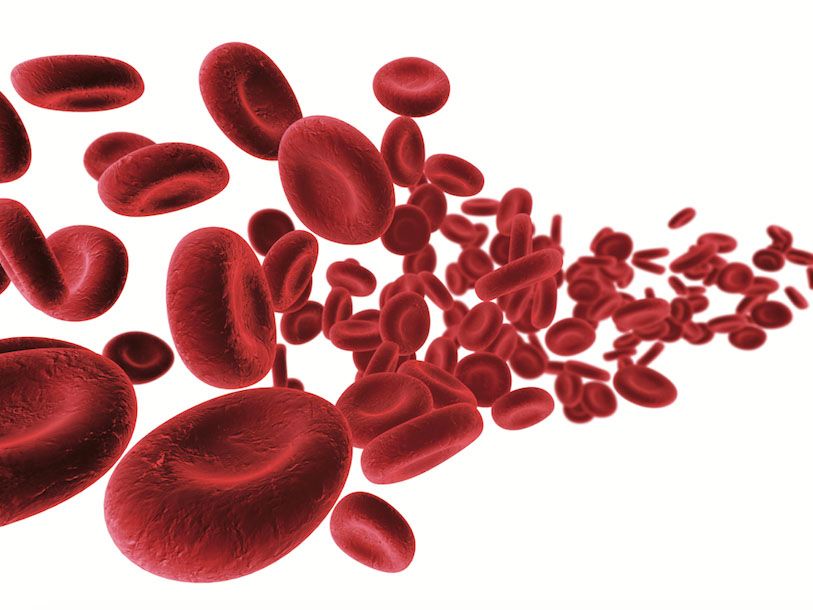EBRT Shows Promise in Relapsed/Refractory Follicular Lymphoma
External beam radiation therapy can be effective when integrated in a multimodality treatment strategy for patients with relapsed/refractory follicular lymphoma, according to findings from a small, retrospective study.

External beam radiation therapy (EBRT) can be effective when integrated in a multimodality treatment strategy for patients with relapsed/refractory follicular lymphoma, according to findings from a small, retrospective study.
In the study, the response rate after EBRT was 86% (13 of 15 patients) at a median follow-up of 3 months posttreatment, including 11 (73%) complete responses and 2 (13%) partial responses. Two-thirds of patients had disease control after 1 or 2 courses of EBRT.
“This small pioneer study suggests that multimodality approach including external beam radiotherapy may achieve high success rate with minimal toxicities in relapsed and refractory follicular lymphoma although a great scope for improvement exists for radiation procedures,” the investigators wrote.
The researchers identified 27 patients in the Curie institute database who were diagnosed with follicular lymphoma and treated with radiotherapy between June 1995 and February 2014. Ten patients were excluded from the analysis for various reasons including receiving first-line or consolidative radiotherapy (n = 4), having exclusive skin or bone localization (n = 6), having primary transformed follicular lymphoma (n = 1), and insufficient data (n = 1).
The 15 evaluable patients included 11 women and 4 men with a median age of 68.2 (range, 38-86). Seven patients had stage I/II disease with the remaining 8 having stage III/IV. The median FLIPI score was 2 (range, 0-4).
There were 2 patients with bulky disease (>7 cm) and 4 patients whose tumors transformed into aggressive lymphoma at a median of 29.4 months (range, 0-34.5) after diagnosis. In all instances, the transformation took place after irradiation.
Seventy-three percent of patients (n = 11) had relapsed disease and 27% (n = 4) had refractory. Five patients had stage I disease at relapse, with the remaining 6 patients having stage 2.
Involved field radiotherapy was administered to 3 patients, with the remaining 12 receiving involved site radiotherapy. Five patients received intensity-modulated radiotherapy by Tomotherapy, and the other 10 received radiotherapy with a 6 to 20 MV linear accelerator with lower energies used for superficial disease.
At relapse, 10 patients received systemic therapy, including 10 with chemotherapy; 8 with anti-CD20 antibodies, such as rituximab (Rituxan); and 5 with an anthracycline-based regimen. Three patients had second-line chemotherapy. No patient received autologous stem cell transplant following relapse.
The median dose of EBRT was 30 Gy (range, 2-40) and the median number of fractions was 15 (range, 2-20). Eighty-six percent of patients were in remission at last follow-up, including those who received salvage chemotherapy.
At a median of 20.2 months after EBRT, 53% (n = 8) of patients relapsed. Five of these patients relapsed in the irradiated localization, following 2 irradiations of 2 Gy. Contralateral nodal relapse occurred in the other 3 patients.
At a median of 23.3 months, 3 of the patients who relapsed had a new irradiation, with all 3 having a response, including 2 complete responses and 1 partial response. At a median of 8.1 months (range, 3.0-15.2), none had an additional relapse.
The investigators conducted univariate analysis, and the only predicting factor for non-control disease was Follicular Lymphoma International Prognostic Index (FLIPI) score >2 (odds ratio = 21;P= .02)
“Toxicity induced by radiotherapy was very low. No events above grade 1 were noted, with 1 mucitis, 1 radio dermatitis, and 1 xerostomia,” the researchers wrote.
Reference:
Grignano É, Deau-Fischer B, Loganadane G, et al. Radiotherapy of relapse-refractory follicular lymphoma [published on line Feb 21, 2018]. Cancer Radiother. doi: 10.1016/j.canrad.2017.09.003.
Does Odronextamab Show Hope in FL and DLBCL Despite Regulatory Hurdles?
November 5th 2024Despite regulatory challenges from the FDA, odronextamab has received European approval for the treatment of patients with relapsed/refractory follicular lymphoma or diffuse large B-cell lymphoma following 2 prior treatments.
Read More
Phase 3 Trial of Tafasitamab in Follicular Lymphoma Meets Primary End Point
August 16th 2024The phase 3 inMIND trial evaluating tafasitamab in combination with lenalidomide and rituximab in relapsed or refractory follicular lymphoma showed promising progression-free survival findings, according to topline results.
Read More